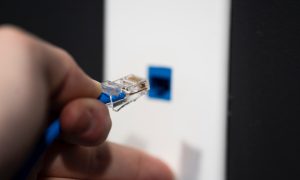In the rapidly evolving landscape of technology, the Internet of Things (IoT) has emerged as a transformative force, influencing various sectors and redefining the way we interact with devices. The integration of IoT with mobile app development has become a key driver in enhancing user experiences and functionality. In this article, we will explore the profound impact of IoT on current mobile app development trends, unveiling a new era of interconnected and smart applications.

Understanding IoT in Mobile App Development
The Internet of Things refers to the network of interconnected devices, objects, and systems that communicate and exchange data with each other. When integrated into mobile app development, IoT extends the capabilities of applications beyond traditional functionalities, creating a seamless and intelligent user experience.
1. Enhanced User Engagement
Mobile apps leveraging IoT provide users with personalized and context-aware experiences. For example, a fitness app connected to IoT-enabled wearables can track users’ health metrics in real time, offering personalized recommendations for exercise routines and nutrition.
2. Smart Home Integration
IoT has revolutionized home automation through mobile apps. Smart home applications allow users to control and monitor various devices, such as thermostats, lights, and security systems, remotely. Mobile apps act as centralized hubs, providing users with convenience and energy efficiency.
3. Wearable Technology
Wearable devices, such as smartwatches and fitness trackers, have become ubiquitous in the IoT ecosystem. Mobile apps seamlessly connect with wearables to provide real-time health and fitness data. This integration enhances the overall user experience and encourages a healthier lifestyle.
4. Industrial IoT (IIoT) Integration
In the industrial sector, mobile apps integrated with IoT technologies contribute to efficient and data-driven operations. Industrial IoT enables real-time monitoring of machinery, predictive maintenance, and remote control, improving productivity and reducing downtime.
5. Location-Based Services
IoT-enabled mobile apps leverage location-based services for enhanced user engagement. Retail apps, for example, can send personalized promotions to users based on their location, creating a more targeted and relevant shopping experience.
6. Healthcare and Remote Monitoring
IoT plays a pivotal role in healthcare app development. Mobile apps integrated with IoT devices enable remote patient monitoring, medication adherence tracking, and real-time communication between patients and healthcare providers, fostering a more connected and efficient healthcare ecosystem.

7. Augmented Reality (AR) and Virtual Reality (VR)
The fusion of IoT with AR and VR technologies is reshaping the landscape of mobile app development. From interactive gaming experiences to immersive virtual tours, IoT-enhanced AR and VR apps provide users with a heightened sense of engagement and interactivity.
8. Energy Management
IoT-driven mobile apps contribute to sustainable practices by facilitating energy management. Smart energy apps enable users to monitor and control their home’s energy consumption, optimizing usage and promoting environmental consciousness.
9. Security and Data Privacy
The integration of IoT in mobile app development emphasizes the importance of robust security measures. Developers focus on implementing encryption protocols and secure authentication methods to safeguard sensitive data transmitted between devices and applications.
10. Cross-Platform Compatibility
IoT-driven mobile apps often prioritize cross-platform compatibility to ensure a seamless user experience across different devices. This approach enhances accessibility and widens the user base, allowing individuals with diverse IoT-enabled devices to interact with the application.
Challenges and Future Trends
While the impact of IoT on current mobile app development trends is substantial, challenges persist. Issues related to data security, interoperability, and standardization need to be addressed. Additionally, the future trends in IoT-driven mobile app development are expected to include advancements in edge computing, 5G connectivity, and more sophisticated AI integrations, further enhancing the capabilities of interconnected applications.
The intersection of IoT and mobile app development is reshaping the digital landscape. It is doing so by introducing a new era of intelligent and interconnected applications. From smart homes to industrial automation and healthcare, the impact of IoT is visible across various sectors. Mobile app developers continue to innovate, leveraging IoT technologies to create applications that not only enhance user experiences but also contribute to efficiency, sustainability, and connectivity. As IoT continues to evolve, its influence on mobile app development will likely propel us into a future where seamlessly integrated, smart applications are the norm, offering users unparalleled convenience and connectivity.













